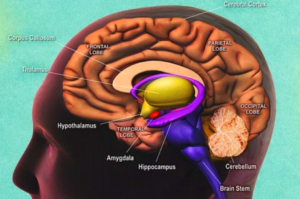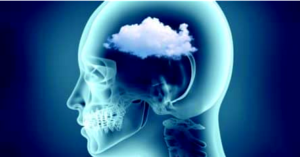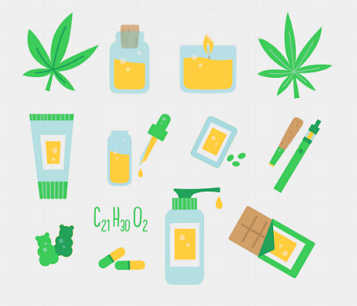Sweden was ranked sixth in last year’s ‘World’s Happiest Country Index’, and it has been in the top ten of nations worldwide for the last ten years. Citizen representatives are asked to vote on a scale, answering questions about their contentment with their lives across different areas — Sweden is a happy place!! How then is it that a 2020 study found the prevalence of depression in Sweden to be around 31%, with those numbers especially significant when it comes to ethnic minorities and with young persons – especially women. Over 12% of the Swedish population used anti-depressant medication last year, and Sweden ranked 5th last year amongst OECD countries in terms of ant-depressant use. Sweden’s youth (14-21) are considered the most at risk for depression of any European Union nation!
What’s going on here? How can a people who rank themselves as having such a contented life have such a disproportionate number of depression sufferers? Let’s take a look at some of the reasoning put forth as to why that paradox of contentment and depression exists in Sweden. After we do that let’s take a look at how CBD fits so snugly into the lock that is made up of the factors that seem to form the basis of Sweden’s depression challenges — possibly opening the door on some relief for so many. But before we do that, we should take a quick look at what depression is, how it might be caused, and the many symptoms it displays.
What is Depression?
Depression is a mood disorder that causes a persistent feeling of sadness and loss of interest. Also called major depressive disorder or clinical depression, it affects how you feel, think and behave and can lead to a variety of emotional and physical problems. You may have trouble doing normal day-to-day activities, and sometimes you may feel as if life isn’t worth living. More than just feelings of sadness, depression isn’t a weakness, and you can’t simply “snap out” of it. Depression may require long-term treatment. There are also several other recognised depression syndromes, including: Persistent Depressive Disorder, Premenstrual Dysphoric Disorder, Prenatal or Postpartum Depression, and of particular resonance here in Sweden Seasonal Affective Disorder (SAD).
The symptoms of depression can vary slightly depending on the type and can range from mild to severe. In general, symptoms include:
- Feeling very sad, hopeless or worried. Children and adolescents with depression may be irritable rather than sad.
- Not enjoying things that used to bring joy.
- Being easily irritated or frustrated.
- Eating too much or too little, which may result in weight gain or weight loss.
- Trouble sleeping (insomnia) or sleeping too much (hypersomnia).
- Having low energy or fatigue.

- Having a difficult time concentrating, making decisions or remembering things.
- Experiencing physical issues like headache, stomachache or sexual dysfunction.
- Having thoughts of self-harm or suicide.
What are the causes of Depression?
Researchers don’t know the exact cause of depression. They think that several factors contribute to its development, including:
- Brain chemistry: An imbalance of neurotransmitters, including serotonin and dopamine, contributes to the development of depression.
- Family History: If you have a first-degree relative (biological parent or sibling) with depression, you’re about three times as likely to develop the condition as the general population. However, you can have depression without a family history of it.
- Medical conditions. Certain conditions may put you at higher risk, such as chronic illness, insomnia, chronic pain, Parkinson’s disease, stroke, heart attack, and cancer.
- Stressful life events: Difficult experiences, such as the death of a loved one, trauma, divorce, isolation and lack of support, can trigger depression.
- Medication: Some medications can cause depression as a side effect. A history of substance or alcohol misuse can affect your risk. Most especially alcohol as it is a depressant.
- Pain. People who feel emotional or chronic physical pain for long periods of time are significantly more likely to develop depression.
What are the effects of Depression?
Mental health conditions like depression can change your brain chemistry. When you suffer from depression, your brain is physically changed. Research by the National Institutes of Health in the U.S.A. shows that you lose gray matter volume (GMV) when you suffer from depression. This loss is caused by parts of your brain shrinking due to the hormone cortisol impeding the growth of your brain cells. Depression causes the hippocampus (brain structure deep in the temporal lobe) to raise its cortisol levels, impeding the development of neurons in your brain. While other cerebral areas shrink due to high levels of cortisol, the amygdala enlarges. The amygdala controls emotion, so this may cause issues like sleep disturbances, mood swings, and other hormone-related problems. An enlarged amygdala is also linked to the development of bipolar disorder.
 An enlarged amygdala doesn’t just impede your emotional health and your mood stability – its increased activity can also cause other issues, like sleep issues and disturbances. Sleep deprivation, in turn, can worsen your overreactions to stimuli. Poor sleep also causes you to develop a more negative mood and mindset, which can cause your depression to worsen. Since this creates a feedback loop, issues with your amygdala can be one of the most dangerous things about major depressive disorder.
An enlarged amygdala doesn’t just impede your emotional health and your mood stability – its increased activity can also cause other issues, like sleep issues and disturbances. Sleep deprivation, in turn, can worsen your overreactions to stimuli. Poor sleep also causes you to develop a more negative mood and mindset, which can cause your depression to worsen. Since this creates a feedback loop, issues with your amygdala can be one of the most dangerous things about major depressive disorder.
Depression and stress are very closely related to one another. Stress hormones can speed up your heart rate and make blood vessels tighten, putting your body in a prolonged state of fight or flight response. Over a period of time, this could potentially lead to heart disease. Depression also impacts your digestive system’s health, especially if you binge eat or take antidepressant medications. If you rapidly gain weight during a depressive episode, you’re more likely to develop diseases closely tied to obesity, like diabetes. Conversely, depression may also cause someone to lose their appetite for food and experience rapid weight loss, which can be equally harmful to the body.
Some people may use drugs or alcohol as a way to deal with their symptoms of depression, leading to substance use disorders. In some cases, this substance abuse issue can develop into life-threatening addictions.
The Happiest Land to be Depressed
There has been much discussion of malaise in Scandinavia, in fact this is most certainly not a recent conversation. Records from as far back as the 9th and 10th Centuries show that Viking-Age Swedes were already aware of the ‘melancholy that results from the darkness of Winter … and the confusion of Summertime sadness’. So, if this is not a solely modern phenomena, how to account for the seeming disparity between a contented life and a dis-contented set of emotions? Several theories have been put forward, a few stand out from the rest – let’s explore these for a moment.
this is most certainly not a recent conversation. Records from as far back as the 9th and 10th Centuries show that Viking-Age Swedes were already aware of the ‘melancholy that results from the darkness of Winter … and the confusion of Summertime sadness’. So, if this is not a solely modern phenomena, how to account for the seeming disparity between a contented life and a dis-contented set of emotions? Several theories have been put forward, a few stand out from the rest – let’s explore these for a moment.
Is it the Weather?
Let’s take a look at some of the statistics from last year, and we’ll use Stockholm as an example as it is somewhat centrally located (on a north-south axis) and happens to contain roughly 22% of the Swedish population. Last December averaged 50 minutes of sunlight per day! There was a total of 1973 hours of sunlight for the year (out of a possible 4383) with an average of 5:24 of sunlight per day. At midday the sun is on average 31.1° above the horizon at Stockholm, and last December it was only 7.3°. As I’m sure these statistics have driven home, Sweden gets very little sun (especially in the late Fall through the Spring) and what it gets is very weak due to its low angle on the horizon.
This lack of sunlight doesn’t just lead to constant conversation, distinct cultural characteristics, and blueberry soup. It also contributes to high rates of Seasonal Affective Disorder. Estimates suggest that roughly 10% of the population suffers from S.A.D. Less sunlight and shorter days are thought to be linked to a chemical change in the brain and may be part of the cause of SAD. Melatonin, a sleep-related hormone, also has been linked to SAD. The body naturally makes more melatonin when it’s dark. So, when the days are shorter and darker, more melatonin is made. A drop in serotonin, a brain chemical (neurotransmitter) that affects mood, might play a role in SAD. Reduced sunlight can cause a drop in serotonin that may trigger depression. So far from just being a safe topic of conversation, the weather in Sweden really does affect, and effect, Swedes.
Is Anybody out there?
Sweden was recently ranked as the loneliest country in the world for the second straight global survey conducted by Immigroup. According to recent statistics from 2021 – 47% of Swedes live in single-person households. That’s roughly half the country that is living alone! The stable welfare system, the affordability (until recently) of single-occupancy apartments, and the smaller number of children (lowest in the EU) have all contributed to what is quickly becoming a national crisis. Combine this with the Swedish cultural characteristics that highly prize privacy, non-expression of emotion, and stoic pride, and you have all the ingredients for growing levels of loneliness. A recent survey by Statistics Sweden of the Swedish population found that 14 percent of respondents said they didn’t have a close friend. This rise has continued for the past 8-10 years, with especially large increases among young people.
 Researchers, psychiatrists, and medical practitioners all agree that loneliness is a strong precursor to depression. The American Psychiatric Institute states that “lacking encouragement from family or friends, those who are lonely may slide into unhealthy habits; in addition, loneliness has been found to raise levels of stress, impede sleep and, in turn, harm the body. Loneliness can also augment depression or anxiety.” It is quite apparent that regardless of the causes, loneliness is a growing national issue that very easily explains the growing prevalence of depression in Sweden.
Researchers, psychiatrists, and medical practitioners all agree that loneliness is a strong precursor to depression. The American Psychiatric Institute states that “lacking encouragement from family or friends, those who are lonely may slide into unhealthy habits; in addition, loneliness has been found to raise levels of stress, impede sleep and, in turn, harm the body. Loneliness can also augment depression or anxiety.” It is quite apparent that regardless of the causes, loneliness is a growing national issue that very easily explains the growing prevalence of depression in Sweden.
Same Same … but Different
Ironically many of the benefits of the Swedish ‘economic miracle’ are also the very reasons for the high rates of depression, with several factors playing a role. In a country that prides itself on its social safety net, the equality of its citizens, and low unemployment, those very same factors could be strongly responsible for the surging rise of depression.
In a country that ranks as one of the most equal in the world, the financial differences between citizens become highly magnified, and become much more apparent. In a society where others are all seemingly doing so well, one’s own economic failures become extremely disheartening and can have a persistent emotional effect – often leading to depression.
With the huge transition in the occupational landscape, and the extreme challenges facing young people, immigrants, ethnic minorities, and women in finding employment, Swede’s report their ‘job situation’ as one of the primary reasons for their feelings of depression. Young persons in Sweden today strongly believe (2019 Statistics Sweden poll) their opportunities to change their economic situation are limited, with 56% feeling that they will not be as economically comfortable as their parents; this is a key indicator of feelings of powerlessness which in turn is a significant precursor to depression.
Sweden’s folkhemmet, or social welfare safety net, which has proven so instrumental in Sweden’s modern history, is also a contributing factor. Swede’s far and away in 2022, lost more working days to ‘mental health issues’ than any other illness or injury. A social system that provides them a comfort blanket – without providing them with either the mental illness resources or social understanding – creates a system that encourages the absence, allows for it to linger, and takes very few proactive steps to rectify or encourage those sufferers to return to work.
contributing factor. Swede’s far and away in 2022, lost more working days to ‘mental health issues’ than any other illness or injury. A social system that provides them a comfort blanket – without providing them with either the mental illness resources or social understanding – creates a system that encourages the absence, allows for it to linger, and takes very few proactive steps to rectify or encourage those sufferers to return to work.
Can CBD be of help in alleviating depression?
CBD is a naturally occurring chemical, it induces its effects on our bodies by binding to our endocannabinoid system’s (ECS) multiple receptors that are distributed throughout the body. This interconnectivity with your ECS is what causes the various health effects CBD is becoming known for, different effects registered depending on the receptor’s location in your body.
Sometimes referred to as the ‘feeling good/pleasure hormone’, serotonin is key to the feelings of pleasure one has, and for the general feeling of being in a ‘good mood’. This neurotransmitter plays a key role in mental health. Serotonin supplementation is regularly used in the treatment of mood disorders like depression.
CBD is able to activate specific serotonin receptors that may lead to you experiencing more of the mood-boosting effects of the pleasure hormone. CBD and serotonin have a chemical relationship that has evolved in the human system in unison — they literally have grown together so that they fit like fingers in a glove. Since CBD can increase serotonin, it has the potential to work on depression similarly to antidepressants that stop the degradation of serotonin. Additionally, CBD can assist with many symptoms of low serotonin, such as tension and stress, insomnia, and digestive issues that can arise when a person is dealing with depression or chronic anxiety. The natural interactions that CBD has with serotonin and other hormones, neurotransmitters, and enzyme systems mean it can influence and impact the regulatory processes provided by the body. There is a lot of evidence that CBD not only helps increase levels of molecules that directly improve mood, but also prevents their faster degradation. Additionally, it stimulates higher production of secondary and tertiary molecules from which the “mood” ones are derived.
 While serotonin may play such a key role in creating your ‘good mood’, another hormone, cortisol, does not. Cortisol is a steroid hormone that plays a key role in the development of stress and anxiety, both are symptoms of, and can be precursors to negatively impacting depression. Having higher levels of cortisol has been found to increase levels of stress and anxiety.
While serotonin may play such a key role in creating your ‘good mood’, another hormone, cortisol, does not. Cortisol is a steroid hormone that plays a key role in the development of stress and anxiety, both are symptoms of, and can be precursors to negatively impacting depression. Having higher levels of cortisol has been found to increase levels of stress and anxiety.
CBD may help you reduce the stress-inducing effects of cortisol. CBD has been found to possibly decrease cortisol levels by hindering its production. This may then leave you without its mood-reducing effects and will hopefully help to improve your depression symptoms.
Balancing the Challenges and the Blessings of Living in Sweden
Sweden is appropriately ranked as one of the happiest countries in the world to live – as is its due. It’s a wonderful place with a high quality of life, economic opportunities, space to grow, and clean air to breathe. There are challenges – both culturally, geographically, and economically — as there are anywhere. Many of these challenges are contributing to the growth of depression in Sweden at a previously unheard-of level. However, there are solutions. Depression is one of the most treatable mental health conditions; approximately 70% to 80% of people with depression who seek treatment eventually respond well to treatment. There are several treatment options that are currently in use, and this list is definitely not exhaustive:
- Psychotherapy: speaking with a mental health professional. Your therapist can help you identify and change unhealthy emotions, thoughts and behaviors.

- Medication: Prescription medicine — antidepressants –can help change the brain chemistry (serotonin) that causes depression. Some antidepressants have side effects that are not for everyone.
- Complementary therapy: It is in this category that CBD would be placed. A natural supplement that works with your body to balance systems. This involves treatments you may receive along with traditional Western medicine. People with mild depression or ongoing symptoms can improve their well-being with therapies such as acupuncture, massage, and biofeedback.
One can also take steps with their own behaviours to help improve their depression symptoms, including:
- Getting regular exercise.
- Getting quality sleep (not too little or too much).
- Eating a healthy diet.
- Avoiding alcohol, which is a depressant.
- Spending time with people you care about.
There is no reason that this happiest of nations cannot find the means to balance the challenges of living here with the blessings of living here.
CBD -- MORE NATURAL AND LESS DAMAGING
THEN ANTI-DEPRESSANTS



